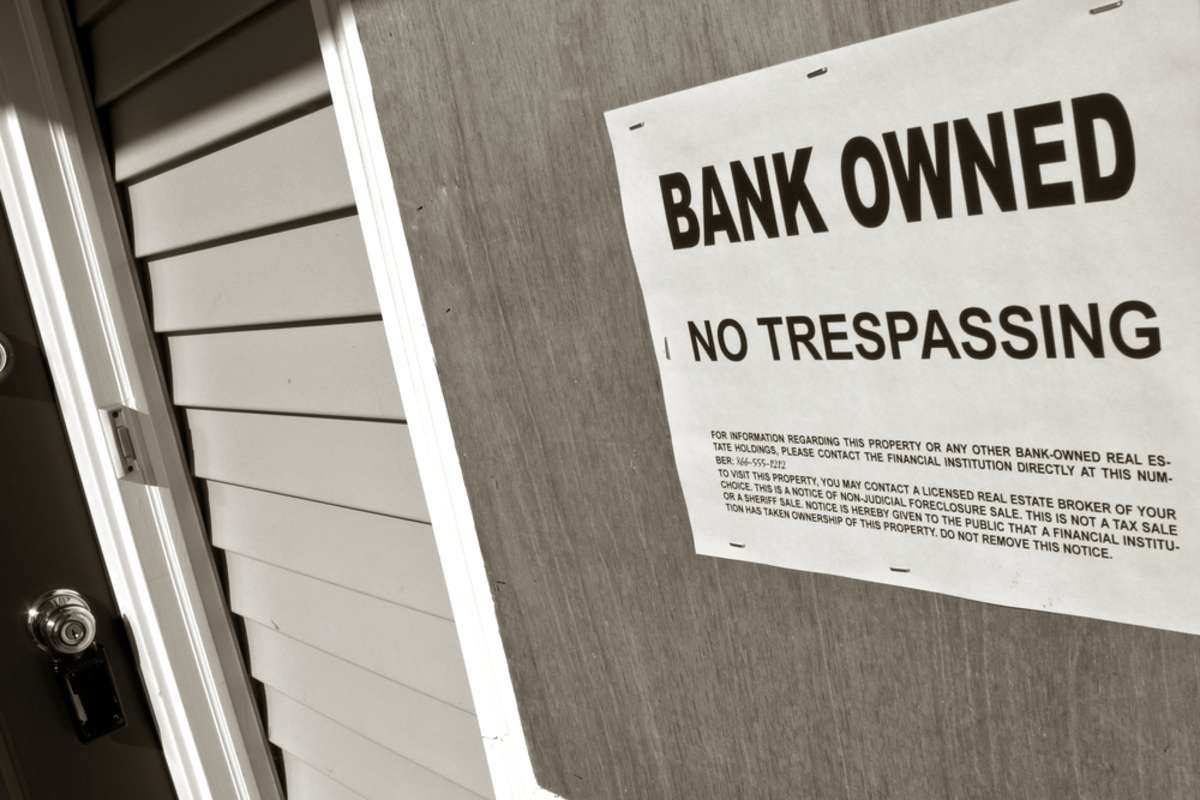Living in a less desirable area doesn't necessarily mean you can't turn your property into a profitable sale. Although location plays a significant role in real estate, there are strategies you can employ to make your home more appealing to potential buyers.
In this blog, we will explore various tactics and provide insightful tips on how to sell your house, even when in a less sought-after neighborhood.
So, let's dive into the world of real estate and learn how to navigate selling a home in a less desirable area. Also, learn about alternative options to sprucing up your house for a traditional sale that will save you time and money.
Challenges of Selling a House in a Less Desirable Neighborhood
Selling a house in a less desirable neighborhood comes with its own set of challenges. Prospective buyers may have concerns about safety, property value, or access to amenities.
Address these concerns and provide reassurance to potential buyers. Some common challenges include:
- Perception: Buyers may have negative perceptions about the neighborhood due to crime rates, school quality, or other factors. Overcoming these perceptions and showcasing the positive aspects of the neighborhood is important.
- Property Value: Homes in less desirable neighborhoods may have lower property values than those in more desirable areas. Pricing your home competitively while still reflecting its value is essential.
- Limited Buyer Pool: The number of potential buyers may be limited in a less desirable neighborhood. Do your homework to identify and target the right audience effectively.
Keep reading to learn strategies to overcome this obstacle and improve your property's appeal!
Enhancing Curb Appeal
When selling a house in a less desirable neighborhood, curb appeal is essential in attracting potential buyers.
The exterior of your home is the first thing buyers see, making it important to create a positive first impression.
Focus on Exterior Maintenance
Start by addressing any visible repair issues, such as cracked sidewalks, peeling paint, or damaged roof shingles. These maintenance tasks not only improve the overall appearance of your home but also instill confidence in buyers that the property has been well taken care of.
Consider power washing the exterior walls and windows to remove dirt and grime buildup. Repair or replace broken or outdated fixtures, such as porch lights or house numbers. Pay attention to the condition of the front door, as it serves as a focal point.
A fresh coat of paint or a new door can significantly enhance the overall look of your home.
Landscaping and Yard Improvements
Another effective way to enhance curb appeal is through thoughtful landscaping and yard improvements. A well-maintained and visually appealing yard can make a significant difference in the perception of your property.
Consider the following tips:
- Lawn Care: Ensure that the lawn is trimmed and well-manicured. Regularly mow the grass, remove weeds, and consider reseeding or applying fertilizer to address any patchy areas.
- Flower Beds and Planters: Add color and vibrancy to your yard by planting flowers or creating flower beds. Choose plants that thrive in your local climate and require minimal maintenance.
- Tree and Shrub Pruning: Trim overgrown trees and shrubs to create a neat and tidy appearance. This not only improves the overall aesthetics but also allows natural light to reach the property.
- Mulching: Apply a fresh layer of mulch to flower beds and around trees. Mulch not only helps to retain moisture but also gives a polished look to the landscaping.
- Pathways and Driveways: Repair any cracks or damages in the pathways and driveways. Consider adding new pavers or a fresh coat of sealant to enhance the overall look.
- Outdoor Lighting: Install outdoor lighting fixtures to highlight key features of your property, such as walkways, trees, or architectural elements. Well-placed lighting can create an inviting ambiance during evening showings.
By focusing on exterior maintenance and implementing landscaping and yard improvements, you can significantly enhance your home's curb appeal.
Improving the Interior
When selling a house in a less desirable neighborhood, improving the interior of your home can significantly enhance its appeal and attract potential buyers. This involves focusing on repairs and updates as well as implementing staging and depersonalization techniques.
Repairs and Updates
First impressions matter, and prospective buyers will be more inclined to consider your property if it is well-maintained and in good condition.
Start by addressing any necessary repairs, such as fixing leaky faucets, repairing damaged walls or flooring, and replacing broken fixtures. These repairs make your home more visually appealing and convey a sense of care and attention to detail.
Consider making updates that can increase the value of your property. This might involve upgrading outdated appliances, replacing worn-out carpeting, or giving the walls a fresh coat of paint.
Ensure that your home is in compliance with local building codes and regulations. Buyers will feel more confident in purchasing a property that meets safety and legal requirements.
Conduct a thorough inspection to identify any issues that need to be addressed before putting your house on the market.
Staging and Depersonalization
Staging your home is an effective way to showcase its potential and allow buyers to envision themselves living in the space.
Start by decluttering and removing personal items. This creates a clean and neutral canvas that allows buyers to focus on the house's features rather than being distracted by personal belongings.
Arrange furniture in a way that highlights the functionality and flow of each room. Consider removing excessive furniture to create a sense of spaciousness. You can also strategically place decorative items, such as artwork or plants, to add visual interest and create a welcoming atmosphere.
Neutralize the color palette by painting the walls in neutral tones. This helps potential buyers envision their belongings in the space and makes it easier for them to imagine living in the house.
 Pricing and Marketing Strategies
Pricing and Marketing Strategies
When selling your house in a less desirable neighborhood, pricing and marketing strategies are crucial in attracting potential buyers and maximizing your chances of a successful sale.
Setting the Right Price
Pricing your house appropriately is essential when selling in a less desirable neighborhood.
Conduct thorough research and gather information about recent sales and listing prices of similar properties in your area. This will help you determine a competitive and realistic price that aligns with the current market conditions.
Consider working with a real estate agent experienced in selling properties in challenging neighborhoods. They can provide valuable insights and help you set a price that reflects the true value of your home while taking into account the neighborhood's unique characteristics.
Highlighting Unique Selling Points
To attract potential buyers, highlight the unique selling points of your property. Focus on the features that make your house stand out, such as recent renovations, updated appliances, or a spacious backyard. Emphasize any improvements or investments you've made that differentiate your house from others in the neighborhood.
Utilize high-quality photographs and well-crafted descriptions to showcase these selling points in your marketing materials. Professional staging and photography can help create an appealing presentation of your home, making it more enticing to potential buyers.
Collaborating with a Real Estate Agent
When selling a house in a less desirable neighborhood, collaborating with a real estate agent can be valuable in navigating the challenges involved.
Here are two aspects to consider when working with an agent.
Finding an Agent Experienced in Selling in Challenging Neighborhoods
The first step is to find a real estate agent with experience and expertise in selling properties in challenging neighborhoods. Look for an agent who understands the unique dynamics of your neighborhood and has a track record of successful sales in similar areas.
They should be familiar with the local market trends, potential buyer demographics, and the specific challenges that may arise during the selling process.
To find such an agent, start by researching local real estate agencies and reading reviews or testimonials from previous clients. Seek recommendations from friends, family, or neighbors who have recently sold their homes in similar neighborhoods.
Additionally, you can utilize online platforms that provide comprehensive listings of real estate agents in your area.
Utilizing Their Expertise and Network
Once you have selected a real estate agent, it's important to leverage their expertise and network to maximize the exposure of your property. A knowledgeable agent will guide you through the entire selling process, providing valuable insights and advice along the way.
Your agent will assist in determining the right price for your property by conducting a comparative market analysis (CMA) based on recent sales data in your neighborhood. This analysis will help you set a competitive price that attracts potential buyers.
Furthermore, a skilled agent will highlight the unique selling points of your property to make it stand out in the market. They will create professional marketing materials, including high-quality photographs and engaging property descriptions.
Additionally, your agent's network of contacts, including other real estate professionals and potential buyers, can play a crucial role in finding interested parties for your property.
Targeting the Right Buyers
When selling a house in a less desirable neighborhood, target the right buyers who may be interested in the unique opportunities and affordability that such neighborhoods can offer.
Identifying Potential Buyers
To effectively target potential buyers, understand who may be interested in purchasing a property in a less desirable neighborhood. Some potential buyers to consider include:
- First-time homebuyers: First-time homebuyers may be attracted to the affordability of properties in less desirable neighborhoods, especially if they are looking to enter the housing market at a lower price point.
- Investors: Real estate investors, such as flippers or rental property owners, may see the potential value in buying properties in less desirable neighborhoods. They may be interested in renovating and reselling the property or renting it out for long-term investment purposes.
- Renovation enthusiasts: Individuals who enjoy renovating properties and have the skills and resources to do so may be interested in purchasing a house in a less desirable neighborhood. They can see the potential in transforming the property into a beautiful home.
- Buyers seeking a fixer-upper: Some buyers are specifically looking for fixer-upper properties that they can customize and renovate to their liking. These buyers may be attracted to the lower purchase price and the opportunity to create their dream home.
By understanding and appealing to these potential buyers, you can effectively market your property and increase your chances of a successful sale, even in a less desirable neighborhood.
Tailoring Marketing Efforts
Once you have identified potential buyers, it's essential to tailor your marketing efforts to attract their attention. Here are some strategies to consider:
- Highlight the potential: Showcase the potential of the property and the neighborhood. Emphasize any unique features or opportunities that the neighborhood offers, such as proximity to amenities, upcoming developments, or community revitalization efforts.
- Focus on affordability: Highlight the affordability of the property compared to other neighborhoods. Showcase how buyers can get more for their money and invest in a property with growth potential.
- Emphasize renovation opportunities: If the property requires renovations, highlight the opportunity for buyers to customize and create their ideal living space. Showcase before-and-after images of similar projects to demonstrate the potential transformation.
- Utilize online platforms: Leverage online platforms and social media to reach a wider audience. Consider creating targeted ads or using local neighborhood groups to promote the property to potential buyers who may be specifically interested in the area.
- Collaborate with a real estate agent: A real estate agent experienced in selling properties in challenging neighborhoods can provide valuable insights and guidance. They have the expertise and network to effectively market the property and connect with potential buyers.
By identifying potential buyers and tailoring your marketing efforts to their specific needs and interests, you can increase the likelihood of attracting the right buyers and successfully selling your house in a less desirable neighborhood.
Considering Creative Selling Options
Selling a house in a less desirable neighborhood can present unique challenges, but there are creative selling options available to overcome these obstacles.
Partnering With a Reputable Cash Buyer Company
In challenging real estate markets, partnering with a reputable cash-for-houses company, like our team here at Homefield Homebuyers, can be a viable and efficient option. These companies provide a cash offer on home sales and specialize in buying homes quickly, making them an excellent alternative for sellers looking for convenience and speed.
Cash-for-houses companies, also known as 'We Buy Houses' companies, purchase properties directly from sellers, offering a rapid and straightforward selling process.
The best part? They buy houses as is, eliminating the need for staging, open houses, and the extra time and money spent on repairs or renovations.
Rent-to-Own Agreements
A rent-to-own agreement, also known as a lease-option or lease-to-own agreement, offers potential buyers the opportunity to rent a property with the option to buy it at a later date.
This option can be attractive to buyers who may not qualify for a traditional mortgage or who want to test out the neighborhood before committing to a purchase.
In a rent-to-own agreement, a portion of the monthly rent payment is set aside as a potential down payment or credit toward the purchase price. This allows tenants to build up equity over time while living in the property. It also gives them the chance to improve their credit or save for a larger down payment.
As a seller, a rent-to-own agreement can be advantageous as it expands the pool of potential buyers. It provides an opportunity to generate rental income while working towards a future sale.
However, consult with a real estate attorney to ensure the agreement is legally sound and protects your interests.
 If You're Selling a House As Is, Minnesota Cash Buyers Can Help
If You're Selling a House As Is, Minnesota Cash Buyers Can Help
Selling a house in a less desirable neighborhood presents its unique challenges, but with the right strategies, it's entirely possible to attract potential buyers and secure a successful sale.
Whether it's setting the right price, staging your home effectively, leveraging the expertise of a seasoned real estate agent, or considering creative selling options, each tactic can significantly increase your chances of success.
At Homefield Homebuyers, we pay cash for houses to alleviate the stress and complexity often associated with preparing and selling a house. Our primary goal is to provide a quick, hassle-free, and mutually advantageous solution for homeowners who want to sell their properties.
We buy houses in any condition, "as is," which means no costly repairs, renovations, or staging on your part. There's no need to spend time and money on painting or fixes— we see the potential in every home we buy.
So if you're looking to sell your house fast and without headaches, Homefield Homebuyers is here for you.
For additional help selling your home, Download Your Essential Home Selling Checklist!


 If You're Selling a House As Is, Minnesota Cash Buyers Can Help
If You're Selling a House As Is, Minnesota Cash Buyers Can Help


Comments